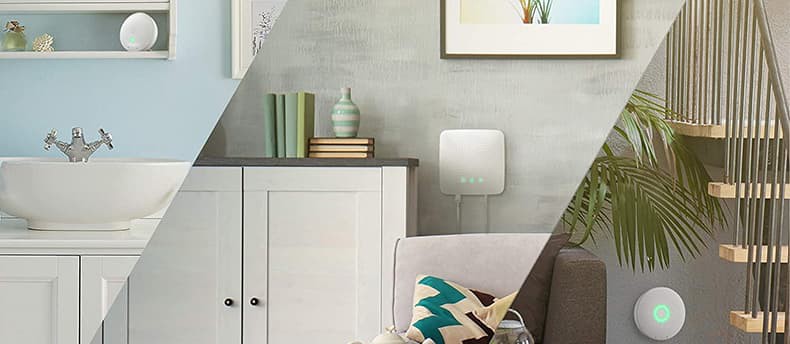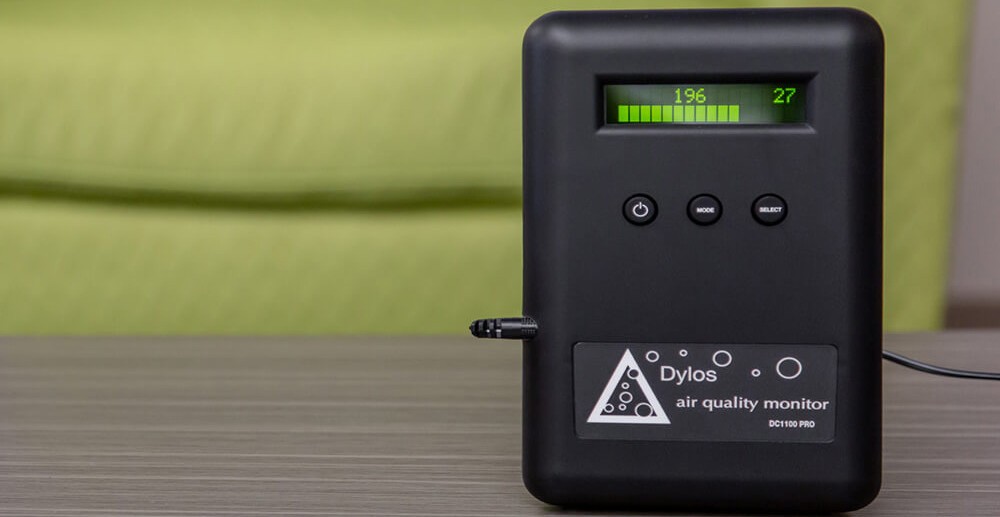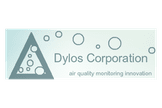Testing Your Air for Allergens and Pollutants
Free Shipping Every Day
Standard shipping is free to the lower 48 states. We also offer 3-Day, 2-Day or Next-Day shipping for a variety of products.
Shipping to Hawaii, Alaska, and Canada may incur additional shipping charges.
Canadian shipments may incur duties, taxes and brokerage fees after your order is confirmed. These fees are non-refundable and will not be reflected in your order total.
For more information, go to Shipping & Delivery Information.
Ask Our Experts

You sneeze, cough, your eyes are red and irritated, and you aren’t sleeping well, but you don’t know why. Your house seems clean. You don't see anything in your air. So what's causing your annoying symptoms? The answer could be more complex than you might think.
Fortunately, simple do-it-yourself air quality testing products can help. For quick access to the topics covered in this article, please use the list below:
- How Do I Know if I Should Test my Indoor Air?
- What are Home Allergen Tests?
- What Kinds of Allergens do Home Test Kits Detect?
- How Do Laser Particle Counters Work?
- Do I Need an Air Quality Monitor?
How Do I Know if I Should Test my Indoor Air?
One of the key benefits of testing your air for pollutants is simply the knowledge gained about the health of your environment. Knowledge provides the information you need to make more educated decisions about how to handle airborne pollutants in your home.
For example, based on the results you receive from using an allergen test kit, you might decide to invest in an air purifier to remove allergens, control VOC’s, and help reduce your symptoms. Results from using a lead test kit may prompt you to hire a lead abatement professional to remove this serious health hazard from your home.
Air quality testing kits can give you the knowledge you need to solve problems in your indoor environment that could ultimately lead to health issues.
What Are Home Allergen Tests?
DIY home allergen test kits are a simple, affordable way to take control of your environment on your own schedule. Completed tests are sent to an independent laboratory for analysis and you receive accurate, understandable results. Test kits are user friendly and don’t require special equipment. Everything you need comes in the kit.
Based on the results, you can determine the best way to remove airborne pollutants to alleviate those irritating symptoms.
What Kinds of Allergens do Home Test Kits Detect?
There is a variety of indoor air quality testing kits, each designed to detect different types of pollutants in your environment. Available types include:
- Allergen Test Kits: Detect and identify common indoor allergens including pollen, dust mites, mold spores, insect fragments, fibers such as those from fiberglass, and skin cells. Independent Dust Mite Test Kits and Fiberglass Test Kits are also available to pinpoint large concentrations of these allergens.
- Mold Test Kits: Detect and identify multiple types of mold, including toxic mold, in vulnerable spots such as basements, bathrooms, crawl spaces, attics, carpeting, and more. Toxic mold can cause severe health issues and requires immediate attention and removal.

- Dust Mite Test Kits: Identify spaces in your home with low, medium, or high concentrations of dust mites, so you can take immediate action to eliminate them.
- Formaldehyde Test Kits: Detect harmful concentrations of airborne formaldehyde, which has been declared a probable human carcinogen by the U.S. Environmental Protection Agency.
- Organic Vapor Test Kits: Identify over 40 organic chemicals and over 50 volatile organic compounds (VOCs) present in your environment. These chemicals can cause a variety of severe adverse health effects including increased cancer risk.
- Lead Test Kits: Especially useful in older homes, you can identify lead on your home's surfaces. Prolonged exposure to lead particles can lead to serious health issues in both children and adults.
How Do Laser Particle Counters Work?
Laser particle counters are the most basic type of air testing device. Air is cycled through the unit, where small and large particles are counted and the results displayed. A large amount may mean it's time to change your air purifier or HVAC system filters, ventilate your indoor space to naturally remove particles, or take further action.
These machines are small and lightweight, allowing you to easily test any area of your home, and can be used indefinitely. Based on the results, you can narrow down your search for the offending particles.
A high large particle count indicates the presence of pollen, bacteria, and spores in the air, common culprits of allergy symptoms. Pet dander and dust mite feces also fall into this category.
Small particles include mold, smoke, smog, bacteria, and fine dust. A high result for these may indicate the need to test for mold, a potentially dangerous pollutant.
Do I Need an Air Quality Monitor?
Air quality monitors are devices that detect a variety of allergens on an on-going basis to both identify and track levels over time. This allows you to gear up for times of high allergen concentration. Many have visual indicators so you know at a glance when air quality levels drop. In addition, many are Wi-Fi connected and provide you with general air conditions outside, including temperature and humidity.
Gas detectors are a special type of air quality monitor which are invaluable in detecting and monitoring levels of toxic gases like formaldehyde, carbon monoxide, and radon. These gases can only be discovered through the use of a detection device and can range from a single test kit, to an on-going gas detector, to a Wi-Fi connected monitor.
In Summary
When looking for the source of allergic reactions, a general home allergen test kit is a good place to start. In addition, mold and formaldehyde tests, along with a radon detector will uncover the most common offenders.
Still Have Questions?
For more information on specific testing products and ways to improve your indoor environment, review our extensive product listings and other educational materials in our Knowledge Center. Not sure what's best for you? We can take the guess work out of decision-making.
Contact our product experts toll free at 1-800-934-9194 for a detailed consultation. Our goal is to help you make your indoor environment healthy and comfortable.
Ask Our Experts























